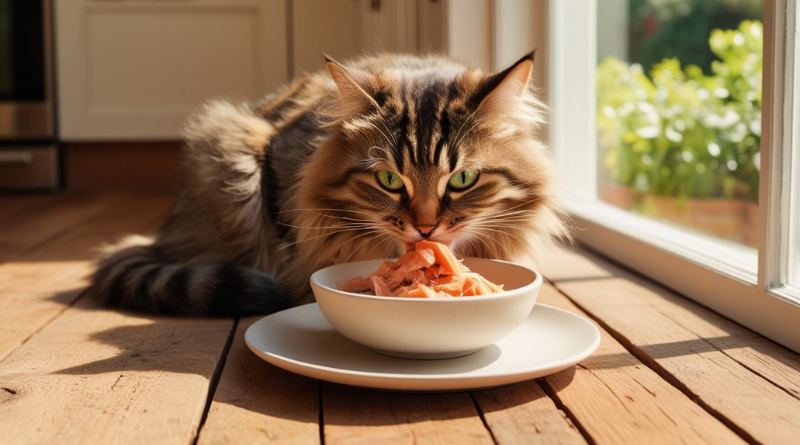Homemade vs. Store-bought Cat Food is a topic of great interest among cat owners who want the best for their feline friends. Feeding your feline friend is one of the most important aspects of cat ownership. With the rise of information about pet nutrition, many cat owners are exploring the benefits and drawbacks of homemade cat food versus store-bought options. Both choices have their pros and cons, and understanding these can help you make an informed decision about what’s best for your cat.
Nutritional Balance
One of the primary considerations when deciding between homemade vs. store-bought cat food is nutritional balance. Commercial cat foods are formulated to meet strict nutritional standards set by organizations like the Association of American Feed Control Officials (AAFCO). These products are designed to provide all the essential nutrients that cats need, including taurine, a vital amino acid that cats cannot produce on their own.
In contrast, preparing homemade cat food requires a thorough understanding of feline nutrition to ensure your cat gets a balanced diet. While homemade meals can be healthier if done correctly, they can also pose a risk of nutritional deficiencies if not carefully planned. Consulting with a veterinary nutritionist is crucial if you choose to prepare your cat’s food at home.
Convenience and Time
Convenience is another significant factor. Store-bought cat food is incredibly convenient and saves time. It’s easy to purchase and store, and it comes in various forms, such as dry kibble, wet canned food, and semi-moist pouches. This convenience makes it an attractive option for busy pet owners.
On the other hand, preparing homemade cat food can be time-consuming. It involves researching recipes, shopping for ingredients, and cooking meals. For some pet owners, the effort required might be a worthwhile investment in their cat’s health, but for others, the time commitment can be a significant drawback.
Quality Control and Ingredients
Quality control is a critical aspect to consider. Store-bought cat food from reputable brands undergoes rigorous testing to ensure safety and quality. These products are subject to recalls and regulatory oversight, which helps maintain high standards.
With homemade cat food, you have complete control over the ingredients. You can select high-quality, fresh ingredients and avoid additives or preservatives that are often found in commercial foods. However, this also means you are responsible for ensuring the ingredients are safe and appropriate for feline consumption. This requires knowledge and vigilance to avoid harmful foods.
Cost Considerations
Cost is another factor that influences the decision between homemade and store-bought cat food. High-quality commercial cat food can be expensive, but it often provides consistent nutrition without the need for additional supplements.
Homemade cat food can be more cost-effective, especially if you buy ingredients in bulk. However, the cost of supplements and the time investment required should also be considered. Additionally, any mistakes in nutritional balance could lead to health issues, which might result in costly veterinary bills.
Health Benefits and Risks
Both homemade and store-bought cat foods have their health benefits and risks. Commercial foods are designed to meet all nutritional needs and often include added benefits such as dental health support and hairball control. However, some store-bought foods can contain fillers, artificial colors, and preservatives that may not be ideal for all cats.
Homemade cat food, when properly formulated, can provide a diet free from unwanted additives and tailored to your cat’s specific health needs. However, the risk of an unbalanced diet is higher, which can lead to deficiencies and health problems over time.
Conclusion
Choosing between homemade and store-bought cat food depends on your ability to provide a balanced diet, the time and effort you are willing to invest, and your cat’s specific health needs. Regular vet visits are crucial to monitor your cat’s health and make necessary dietary adjustments. Consulting with a veterinarian or a veterinary nutritionist can help you make the best decision for your feline friend. Ultimately, the best choice is the one that ensures your cat remains healthy, happy, and well-nourished.
Sources:

